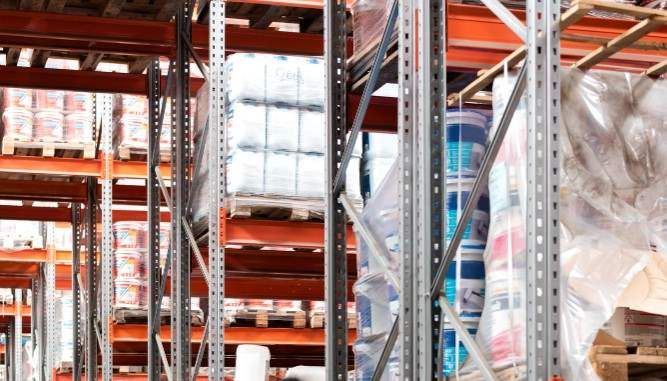The industrial chemical industry is undergoing a profound digital transformation as companies in this sector increasingly embrace cutting-edge technologies to streamline their supply chains and modernise their procurement systems.
Traditionally dominated by manual sales processes, face-to-face transactions, and paper-based documentation, chemical manufacturers and their customers are now rapidly moving towards a more digitized, automated, and interconnected landscape. It is a long-awaited change which has been spurred on by the need for greater efficiency, transparency, and data-driven decision-making.
While the change has been expected ever-since Jeff Bezos showed the world how online shopping could work with retail market domination by Amazon, chemical suppliers and buyers have so far been reluctant to switch to online systems due to fears over industrial secrets and pricing privacy. Most notably because buying three hundred tonnes of acetone takes a lot more scrutiny and security than buying a book or a present for the kids.

Now a new wave of investment is likely to have an impact on how industrial chemicals will be traded.
The largest move was made by the private equity firms Lightspeed and Alpha Wave Incubation who have invested $40 million in Mstack Chemicals – a company which connects small and medium sized chemical producers from Asia and the Middle East with customers primarily based in North America. The platform it operates would be familiar to anyone who has ever shopped online, with industrial chemical buyers interacting directly with Mstack via a catalogue of products offered by external chemical suppliers.
According to the latest press release, the company, “currently operates in four market segments: oil and gas, coatings, water treatment, and home and personal care.” Adding that, “… it will use the investment to expand into agriculture and pharmaceuticals, boost its custom formulation services, hire additional US-based staff, and double down on its mission to disrupt a historically flawed supply chain for specialty chemicals.”

Alongside this news has been the announcement by the chemical sourcing start-up Valdera that it has raised $15 million in an investment round led by Index Ventures.
Valdera is a business already supported by big names, such as Procter & Gamble, Unilever, Estée Lauder, Bayer, Nestlé, and Henkel, who use the company’s database of raw material suppliers and AI assistance to support their stocking and purchasing decisions. The platform closely follows market trends and analyses supply chain risks to help its customers gain a competitive edge and to make raw material cost savings.
Univar Solutions is another chemical business supporting Valdera’s advance of online chemical trading platforms.
“Supply chains are tight, managing inventory is difficult, regulations are changing,” notes a company spokesperson. “The innovation [Valdera brings] to the table is exactly what the industry needs right now.”
According to Robert Khachatryan, CEO of the shipping company Freight Right Global Logistics, the resurgence of online chemical trading is a natural step in further digitalizing the supply of industrial raw materials – much as has already happened in other sectors.
“Valdera and Mstack are essentially software platforms looking to serve chemical distributors as clients, similar to how Adobe provides tools for publishers,” he observes.

Given the enormous value of the industrial chemical industry and its delay in moving sales online, the investments are seen as a savvy move. As Dan Gwak, a managing partner at Point72 Private Investments (who took part in the latest investment round) notes, “The chemical and ingredient industry has the potential to immensely benefit from digitization.”
There is certainly room for streamlining and efficiency improvements to be made if the chemical industry can digitalise the way it trades. From online marketplaces and e-commerce portals to AI-powered supply chain management systems and predictive analytics, chemical companies have the ability to leverage the power of digital technologies to enhance pricing strategies, optimize logistics, improve inventory management, and foster deeper collaboration across the value chain.
Related articles: 3 Ways to Improve Productivity in Chemical Industry Workers or The Economic Value of Green Chemistry in Industry
A digital shift which could not only improve operational performance and profitability, but also enable chemical companies to better anticipate and respond to the evolving needs of their customers in an increasingly dynamic and globalized marketplace.
A true step beyond the telephone and Rolodex. As the Valdera press release notes, when it comes to the buying and selling of industrial chemicals, “The old ways of working are gone.”